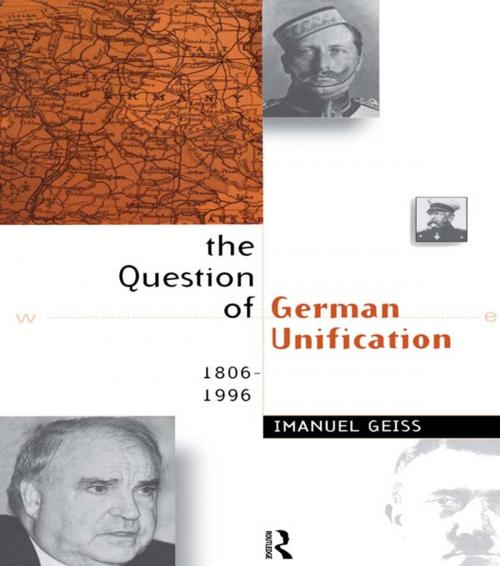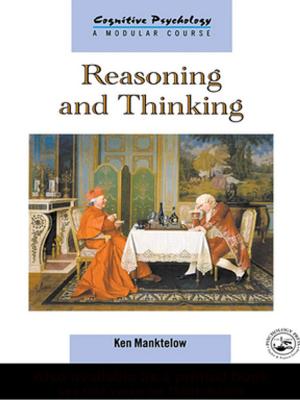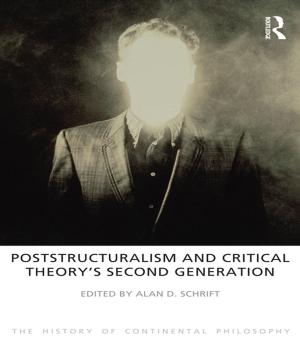| Author: | Imanuel Geiss | ISBN: | 9781136185755 |
| Publisher: | Taylor and Francis | Publication: | December 16, 2013 |
| Imprint: | Routledge | Language: | English |
| Author: | Imanuel Geiss |
| ISBN: | 9781136185755 |
| Publisher: | Taylor and Francis |
| Publication: | December 16, 2013 |
| Imprint: | Routledge |
| Language: | English |
The course of recent German history has been volatile. Events in Eastern Europe, the collapse of European Communism and German Re-Unification has brought issues of Germany's status into the arena of world politics. The Question of German Unification presents an introduction to the last two hundred years of German history and addresses questions raised by the status of Germany as a single or split national state.
Imanuel Geiss:
* argues that Germany has fluctuated all too frequently, and catastrophically, between being the power centre of Europe or a power vacuum
* describes the special features of German history and looks at Germany within a European framework
* analyses the political, economic and social aspects of German Nationalism as well as the impact of the collapse of Communism on Germany, through detailing long-term structures and processes
* includes discussion of recent political events as well as a chronology and further reading.
Imanuel Geiss reflects on the irrationalities of German history, surveys how they have been explained by historians, and provides a succinct and readable account of the complex issues involved.
The course of recent German history has been volatile. Events in Eastern Europe, the collapse of European Communism and German Re-Unification has brought issues of Germany's status into the arena of world politics. The Question of German Unification presents an introduction to the last two hundred years of German history and addresses questions raised by the status of Germany as a single or split national state.
Imanuel Geiss:
* argues that Germany has fluctuated all too frequently, and catastrophically, between being the power centre of Europe or a power vacuum
* describes the special features of German history and looks at Germany within a European framework
* analyses the political, economic and social aspects of German Nationalism as well as the impact of the collapse of Communism on Germany, through detailing long-term structures and processes
* includes discussion of recent political events as well as a chronology and further reading.
Imanuel Geiss reflects on the irrationalities of German history, surveys how they have been explained by historians, and provides a succinct and readable account of the complex issues involved.















